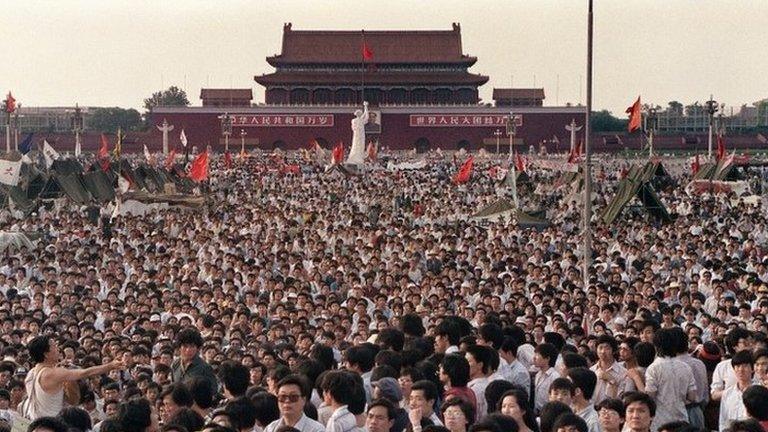Zhao Ziyang: Purged Chinese Communist reformer is buried
- Published
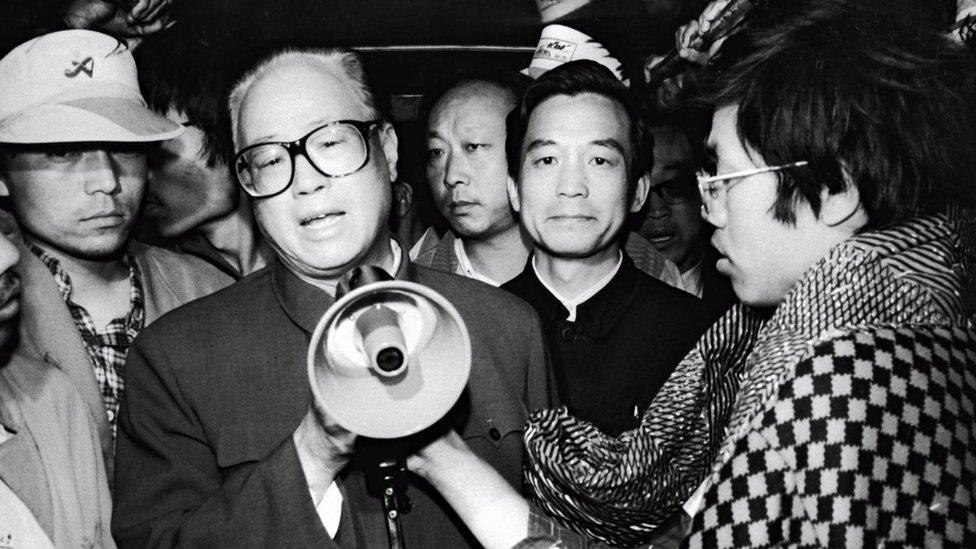
Zhao Ziyang, seen here talking with students in Beijing in May 1989
The ashes of reformist Chinese leader Zhao Ziyang, purged for opposing using force to suppress student protests in 1989, have been buried in Beijing.
The remains of Mr Zhao, who died in 2005, were interred along with those of his wife in a quiet ceremony.
Mr Zhao was ousted as general secretary of the Communist Party in 1989 and lived under house arrest until he died.
The crackdown authorised by officials killed hundreds, and has been excised from Chinese history books.
Negotiations about what to do with the ashes of a man the authorities have also tried to write out of history have gone on for years.
Only close family were allowed to attend the low-key burial in Tianshou Garden cemetery in Chaoping in Beijing's northern outskirts. Well-wishers and supporters were kept away.
"Today we are burying our parents with family ceremonies. The small ceremony is held in the atmosphere of family peace," Mr Zhao's daughter Wang Yannan told BBC Chinese.
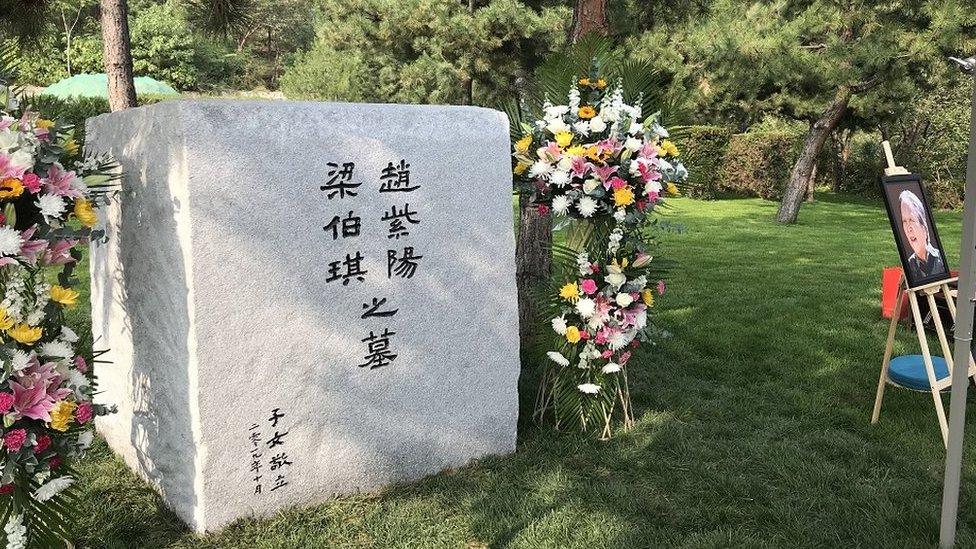
The grave of Mr Zhao, who has been airbrushed from Chinese history
She also apologised for not publicly announcing the burial before it went ahead, saying the family were unsure if they would get the green light from authorities until the last minute.
Zhao Ziyang was promoted by China's former supreme leader, Deng Xiaoping, who was looking for someone to reform the economy and open up the country to the outside world.
His position seemed assured when he was made general secretary of the ruling Communist Party in 1987.
Tiananmen's tank man: The image that China forgot
But the protests by students and residents in Beijing - and elsewhere across China - two years later revealed deep divisions within the party leadership.
Hundreds of thousands called for democratic reforms in a peaceful demonstration largely focused on a gathering in Tiananmen Square.
Mr Zhao, who had a more liberal attitude than other leaders, favoured a conciliatory approach towards the protesters.
That view eventually lost to those who wanted to bring in the army, and Mr Deng approved the detention of his former favourite.

The end of a long wait
Analysis by Vivian Wu, BBC Chinese
The burial of Zhao Ziyang - once China's top official - has been a contentious issue.
Usually, Chinese state leaders' burials are extravagant affairs, complete with media fanfare. But when Mr Zhao died in 2005, it was announced that his cremation would be held in a conventional cemetery, designated for state leaders, high ranking-officials and celebrities tolerated by the authorities. Then, officials refused permission for his ashes to be buried, and the family took his ashes home.
He also went without the usual speeches and editorials which celebrate deceased Chinese leaders' major anniversaries.
The authorities had categorised him as a "toppled former leader" whose anniversaries are smothered in deliberate silence and tightened security.
Mr Zhao's family did not accept this arrangement and now, after years of patience, they have been allowed to bury their parents together.
His grave will naturally become a memorial site for the public as he has become an icon for the sacrifice of personal well-being for democracy, despite the red line marked by the authorities on any commemoration of 4 June-related events or people.

- Published1 June 2019
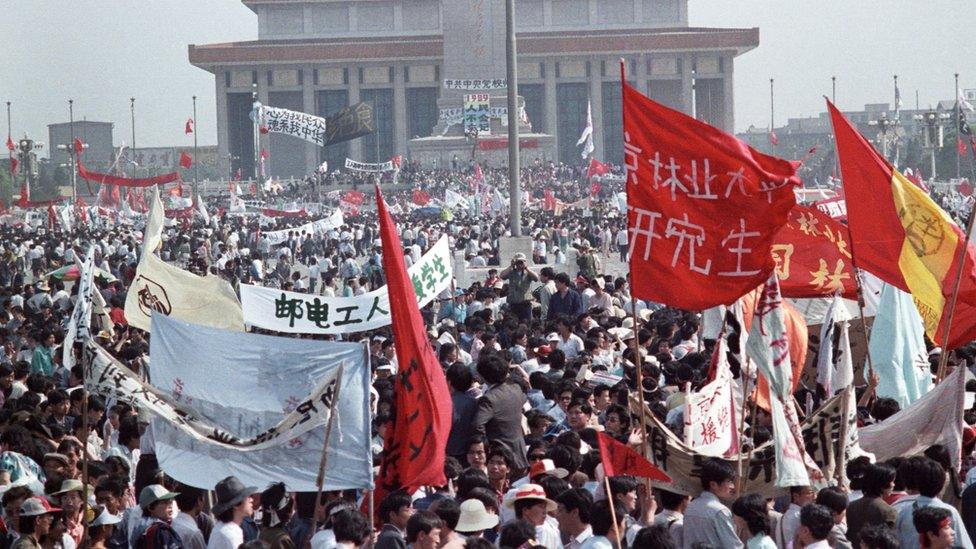
- Published30 May 2019
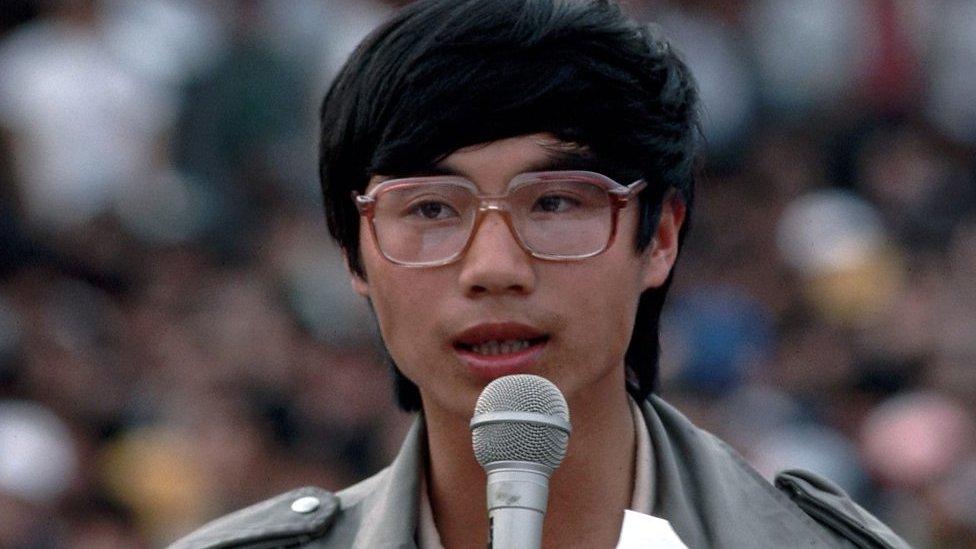
- Published22 May 2019
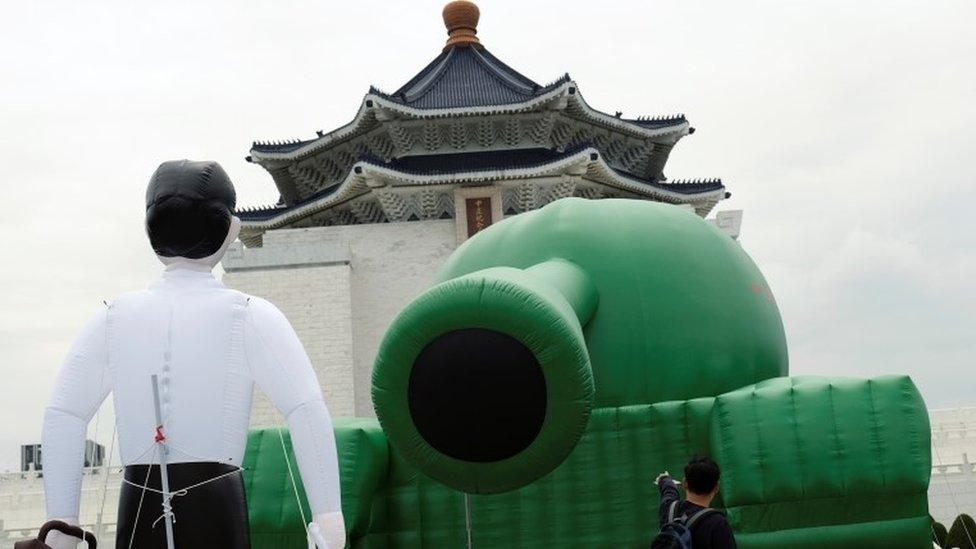
- Published19 April 2019
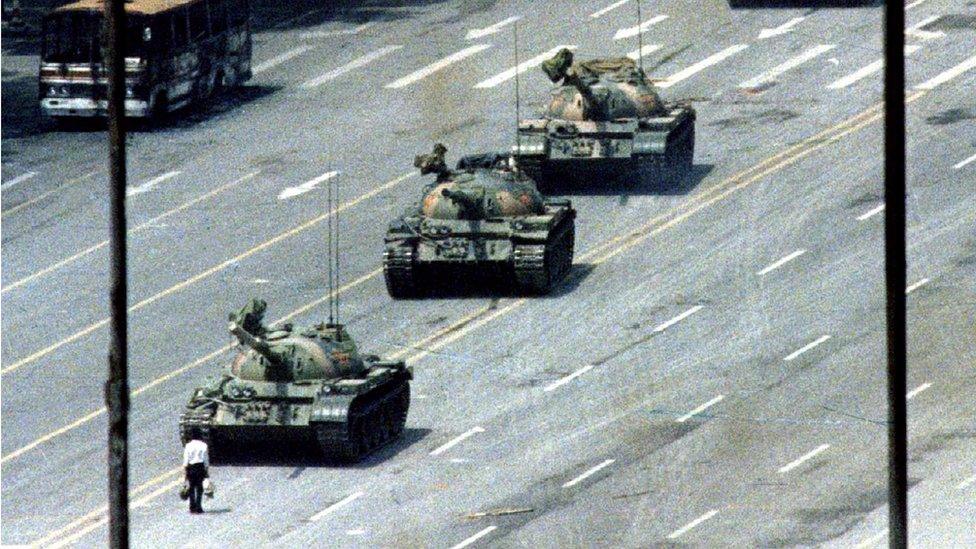
- Published16 January 2014
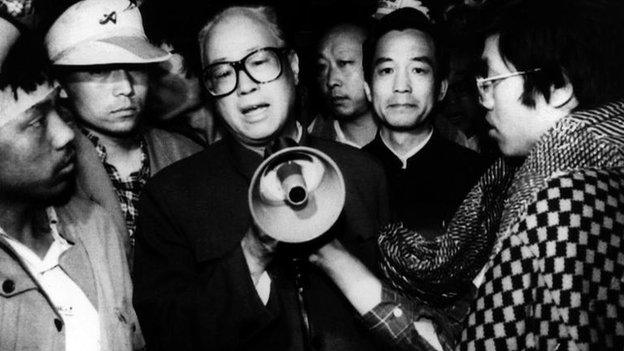
- Published2 June 2014
